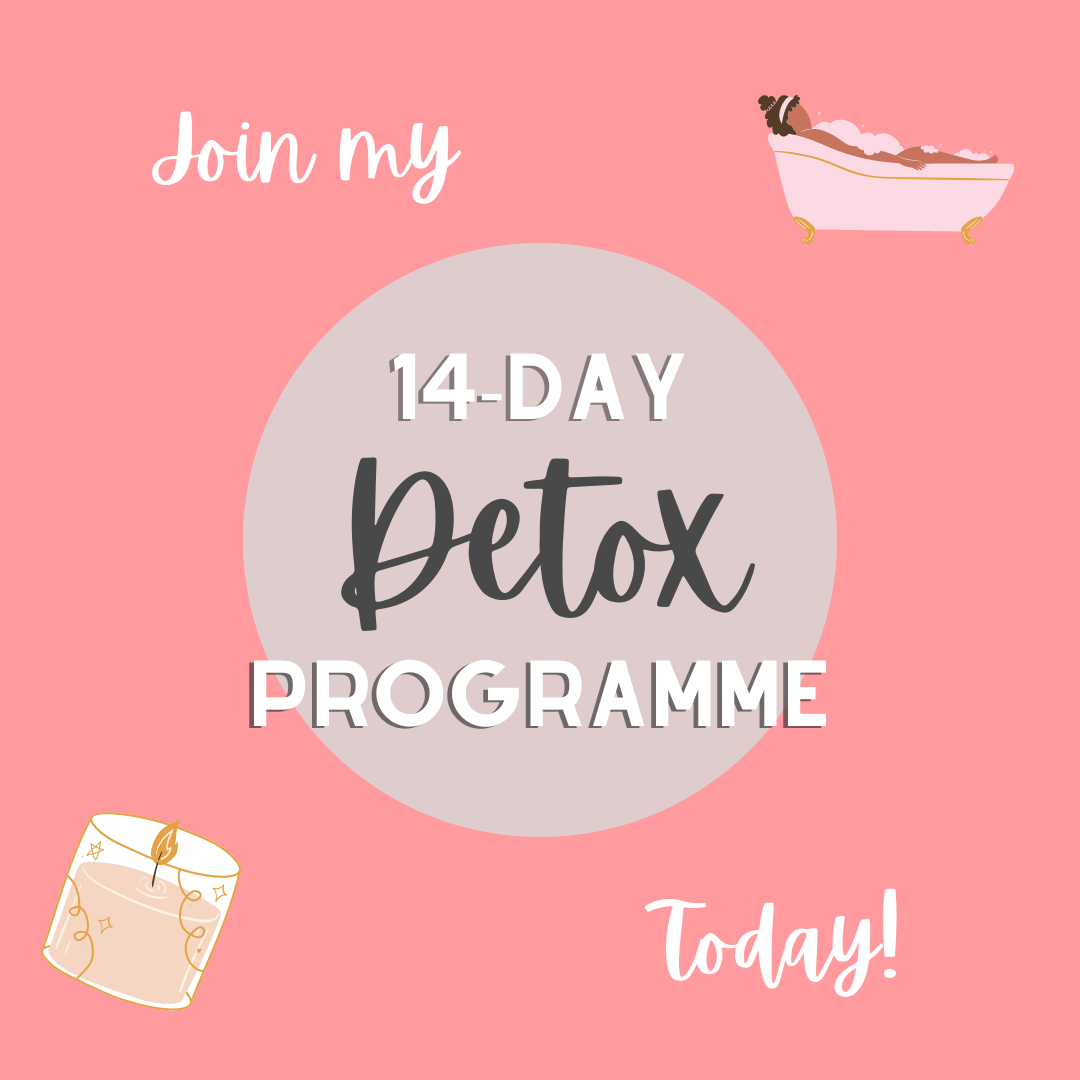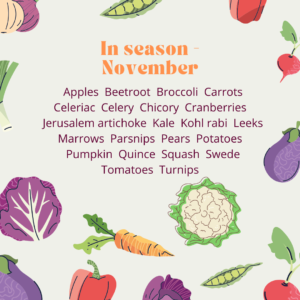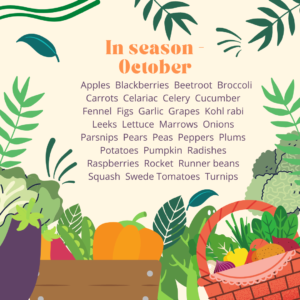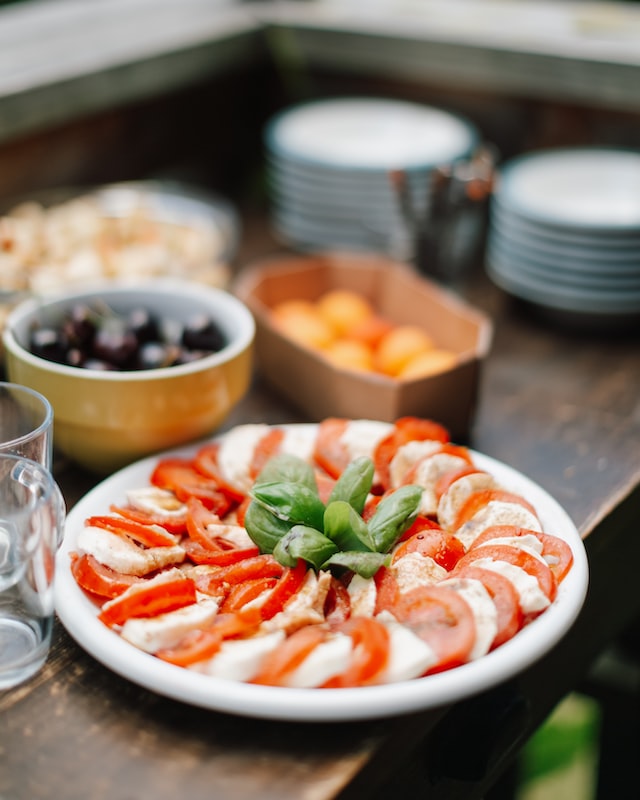I'm looking forward to spending part of the bank holiday weekend reading my new book 'Ultra-Processed People' by Chris van Tulleken. It details how much of the food we eat isn't actually real food. Instead, up to 60% of what we eat are industrially produced edible substances otherwise known as ultra-processed food (UPF). As a rule if you don't recognise some of the ingredients on a packet then you are eating UPF.
You might not want to read the whole book but why not try this short podcast as a taster?
How did ultra-processed foods take over, and what are they doing to us? | Science | The Guardian
Have a great bank holiday weekend, whatever you do!

Feeling sluggish?
Got cravings?
Struggling with weight that won’t seem to shift no matter what you try?
Maybe some of those minor health niggles have really started to get you down. Pimples and rough patches, random headaches, or aches and pains that leave you feeling like you’re a hundred.
In short, there’s nothing really wrong, but you know you could be feeling a whole lot better.
What you eat, how you rest and recover, what you put on your body and how you feed your mind can leave you feeling incredible – but it can also have you feel a bit bleugh.
I’m so glad you’re here because I have just the thing for you: my 14-Day Detox programme.
Although your body is well equipped to deal with the stresses and strains of modern-day living, these natural defence mechanisms can get overwhelmed with the barrage of toxins you’re exposed to on a daily basis.
Those symptoms I mentioned earlier ...? They’re all signs that your body needs a little TLC, and there’s no better way than with a gentle detox.
There’s no harder working organ in your body than the liver, and it’s detoxifying potentially harmful substances 24/7. But, continually bombarded by chemicals and pesticides in the food you eat, those you put on your body or else clean your home with, the body can be in toxic overload. A gentle cleanse will help support your body to naturally eliminate all the extra toxins it’s stored.
This isn’t a fad diet, and nor will you be starving on my 14-Day Detox programme. Instead, we’ll focus on reducing your overall toxic load and nourishing your body and mind from the inside out.
This 14-day programme is for you if you want to:
- Gently and safely support your body’s detoxification process
- Jumpstart your weight loss and cut cravings for sugar and carbs
- Feel more energised – say goodbye to the 3 pm slump!
- Sleep better at night and wake up refreshed
- Rebalance your hormones naturally
- Support your digestion naturally and banish bloating
- Reduce aches and pains
- Reset your body – get into fat-burning mode by eating nutritious food that nourishes your body and soul
- Focus on your own needs for once – now’s the time to put on your own life jacket and futureproof your health
WHAT’S INCLUDED
17-page 14-Day Detox Success Manual
14-Day Detox Recipe Book featuring 30 delicious recipes
26-page 14-Day Detox Progress Journal
Printable shopping lists
Support, inspiration and motivation in a dedicated Facebook group
If you plan to add any 1:1 support, be sure to mention it here
Daily motivational emails
BONUS 15 Ways to Detox Your Home eBook
Click the link to join in now!

Many of us are probably more familiar with seasonal eating in December than any other time of year: it's the reason behind much of the traditional Christmas dinner! Roast potatoes, parsnips, Brussels sprouts, leeks, cauliflower and red cabbage are all very much in season at this time of year. By loading your plate with seasonal veggies (and keeping the potatoes and parsnips to no more than a quarter of your plate) you can have a traditional meal without blowing all your good work from the rest of the year.
For more ideas on how to survive the festive season click for my free guide.
https://bit.ly/ChristmasSurvivalGuide2022

As the days get shorter and the weather turns colder, thoughts turn to warming soups and stews. Use seasonal produce for the best nutrition and freshest taste.
Use carrots, parsnips, squash alongside chicken thighs and butterbeans for a protein and vegetable packed stew. Wilt some kale to serve alongside, or maybe bake it in the oven for a lovely crisp texture.
Staying hydrated is still important; central heating can be very drying. But this doesn't have to mean caffeinated hot drinks like tea of coffee. Try herbal teas or hot water with slices of lemon and ginger for a warming treat.

There’s an abundance of seasonal produce around in October. Seasonal often means more nutritious and better value - important to everyone in these costly times.
For something a bit different maybe try figs with goat’s cheese as a light lunch or starter?
And don’t forget you can use the flesh of your Halloween pumpkin to make spicy soup or stew to keep you warm. Add some protein to it, maybe shredded chicken or some lentils or beans, to help fill you up and give your body what it needs to stay strong.

Why not take the opportunity of National Eye Health Week to think about your own eyes? Making a few changes now could help to avoid conditions such as glaucoma, diabetic retinopathy, diabetic maculopathy and diabetic macular oedema which can lead to a variety of problems including blurred vision, blank patches and even permanent sight loss.
Many of the things that can contribute to eye health, especially diabetes related complications, are controllable:
Firstly, get regular eye tests which will help detect any problems before they fully develop allowing time for treatment.
Secondly, if you smoke, give up now! Smoking increases the risk of nerve damage as well as kidney and cardiovascular diseases. It also makes it much more difficult to manage conditions such as diabetes or high blood pressure.
Thirdly, take a critical look at your diet and other lifestyle habits.
Do you eat at least five portions of vegetables and fruit a day?
Do you eat oily fish every week?
Do you minimise the amount of sugar you eat, including in drinks, cakes, biscuits?
Do you incorporate movement within your day, maybe walking, swimming or dancing?
Are you above your ideal weight, maybe you have always had a few extra pounds or maybe ‘middle age spread’ has caught up with you?
If you aren’t sure how to take these steps, I can help. Let's get together for a chat to get you on track to better health and help to protect your sight for the years to come.

For many, this week has been about getting back to ‘normal’, whether that’s kids at school, back to work or just the weather becoming a bit less extreme. But what doesn’t have to be back to the ‘same old’ is our energy levels. Here are a few top tips to improve energy levels to be able to handle all that the autumn can throw at you.
Hydration: number one for both its impact and ease to fit in. Adding an extra glass of water or two to your day can improve fatigue, headaches and physical and mental performance because the body and brain are both largely water! So keep a refillable bottle next to you as a reminder to keep drinking. You should be aiming for wee that looks the colour of pale straw.
Breakfast: start your day with protein and healthy fats to help keep blood sugar stable and prevent snacking and energy slumps later in the day. Try scrambled eggs with mushrooms on sourdough or rye bread. Or full fat Greek yogurt with berries, nuts and seeds.
Keep moving: sitting still for too long zaps energy because your body thinks it’s nap time. So move, stretch, go for a walk and use the stairs during the working day. And on days off try to get out of the house as much as possible - getting natural light during the day helps your brain register when it is daytime and when it's night - helping you to sleep better.
But not too much exercise: don’t forget to have some rest and recovery time too!

There's so much amazing fruit and veg around at this time of the year as peak harvest time approaches.
If you fancy trying something that you might not have tried much of, here are a few ideas.
Fennel has a mid aniseed taste and can be caramelised in a similar way to onions. It's also good sliced very thinly with green leaves and citrus fruits to make a salad.
Kohl rabi has a round bulb (which can be pale green or purple) but is actually closely related to broccoli, cauliflower and cabbage. It can be used instead of cabbage in coleslaw or can be cut into chunks and roasted to be served alongside a Sunday roast.
Loganberries are a cross between a blackberry and a raspberry and can be used in similar ways. Why not try an apple and loganberry crumble topped with mixed nuts for extra protein and healthy fats?

Whether you are entertaining or relaxing (or both) this bank holiday weekend, keep it simple with fresh seasonal veg. Lots of colourful veg and fruit supports the immune system and helps keep skin healthy through the many antioxidants and phytonutrients.
Think of juicy corn on the cob with a knob of butter melting into it
Sun ripened tomatoes served with torn mozzarella and fresh basil
A quick salad of a selection of baby spinach leaves, cucumber, feta, pine nuts, tomatoes, peppers, spring onion, radishes, avocado, halloumi, walnuts, with a dressing of olive oil and balsamic vinegar
And for dessert, make the most of the abundance of summer berries with this luscious summer pudding
Line a 1 litre/2 pint pudding basin with cling film (to make it easy to turn out the pudding)
Place 750g of mixed berries (raspberries, blackberries, red/black currants, cherries, blueberries etc) in a pan with 185g caster sugar. Bring to a simmer to allow the juices to run out of the fruit.
Line the pudding basin with thin slices of good quality, slightly stale bread with the crusts cut off. You will need to cut the bread to fit! Drizzle the bread with some of the juice from the fruit so it is nicely coated.
Spoon the softened fruit (and any sliced strawberries you want to add) into the prepared basin. Cut an additional round of bread to fit the top of the pudding. Drizzle this with juice. Place a saucer on top of the bread and weigh it down with a couple of tins of beans. Leave overnight in the fridge. To serve, turn out on a plate and remove the cling film. Serve with extra berries, any leftover juice and a dollop of cream.

It is a big day for many young people today with the announcement of A level results and the subsequent decisions on next steps of the education journey. One of the most important things we can do to help support our young people as they get back to studying in the next few weeks is get their diet back on track if it has been a bit too high on the pizza and ice-cream over the summer. Increasing certain key nutrients can help keep young (and not so young) brains in tip top shape. Try these ideas to help them with their studies, keep your own focus levels high and even help to prevent long term cognitive issues such as dementia.
Get plenty of brightly coloured vegetables, berries and other fruit to get good levels of beneficial antioxidants that help to protect the brain.
Eat oily fish twice a week and eat flax seeds, chia seeds or hemp seeds daily to increase omega-3 levels. This improves the structure of the brain cells and supports cognitive function.
Low levels of B vitamins are linked to mental health issues including depression and dementia. Luckily, they are found in a wide variety of foods including meat, grains, eggs, fish, beans, dairy products, leafy greens and yeast extract so having a varied diet will keep the B vitamins topped up.
Low vitamin D is linked to teenage mental health conditions and behavioural issues so considering a supplement might be useful if this is a concern.
Also keeping active is very important as this helps to stimulate the growth of new brain cells in the hippocampus, the area of the brain involved in learning.


